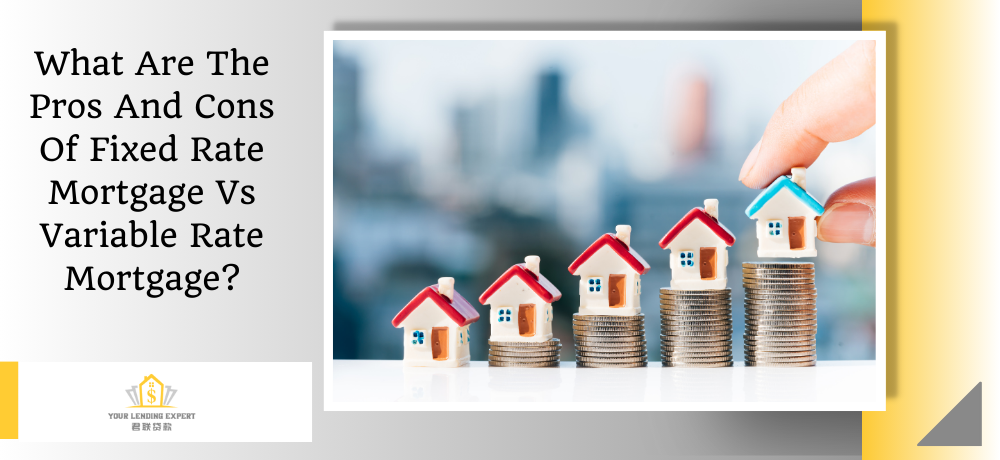
What Are The Pros And Cons Of Fixed Rate Mortgage Vs Variable Rate Mortgage?
- Your Lending Expert - Mortgage Alliance
Categories: Fixed-rate mortgage , Mortgage Broker , Variable-rate mortgage
When it comes to choosing a mortgage, there are many options to consider. Two of the most popular types of mortgages are fixed-rate and variable-rate mortgages. In this blog post, we will explore the pros and cons of each type and help you determine which one is right for your financial needs.
Understanding the Difference Between Fixed and Variable Rate Mortgages
Before diving into the pros and cons, it's important to understand the difference between a fixed-rate and variable-rate mortgage. A fixed-rate mortgage is one in which the interest rate remains the same for the entire term of the mortgage. This means that your monthly payments will remain the same, making it easier to budget for your mortgage payments.
A variable-rate mortgage, on the other hand, is one in which the interest rate can fluctuate over the course of the mortgage term. This means that your monthly payments can vary, depending on the current interest rate.
Pros and Cons of Fixed-Rate Mortgages
Pros:
- Predictable payments: Since the interest rate remains the same throughout the term, your monthly payments will also remain the same. This makes it easier to budget and plan for your mortgage payments.
- Protection from interest rate hikes: If interest rates rise, your mortgage payments will remain the same, providing you with protection from higher monthly payments.
- Easier to understand: Fixed-rate mortgages are straightforward and easy to understand. There are no surprises or unexpected changes to your monthly payments.
Cons:
- Higher interest rates: Fixed rates are not always higher than variable rates, but they can be disadvantageous in a decreasing rate environment.
- Less flexibility: If you want to take advantage of lower interest rates in the future, you may be subject to penalties for breaking your fixed-rate mortgage agreement.
Pros and Cons of Variable-Rate Mortgages
Pros:
- Lower interest rates: Variable-rate mortgages can fluctuate based on market trends, which may make it harder to budget for monthly payments.
- Greater flexibility: If interest rates drop, you can take advantage of lower mortgage payments without incurring any penalties.
- Potential for savings: Over the course of the mortgage term, you may be able to save money on interest payments.
Cons:
- Unpredictable payments: Since the interest rate can fluctuate, your monthly payments may also vary. This can make it harder to budget for your mortgage payments.
- Vulnerability to interest rate hikes: If interest rates rise, your monthly mortgage payments will increase, which can put a strain on your finances.
Which Type of Mortgage is Right for You?
Choosing between a fixed-rate and variable-rate mortgage ultimately depends on your financial situation and your comfort level with risk. If you prefer the security and predictability of consistent monthly payments, a fixed-rate mortgage may be the best choice for you. However, if you are comfortable with a bit of risk and want to take advantage of potential savings, a variable-rate mortgage may be the right option.
At Your Lending Expert - Mortgage Alliance, we understand that choosing a mortgage can be a daunting task. That's why our dedicated team works tirelessly to deliver real estate financing solutions that align with your specific financial circumstances and lifestyle choices.
Contact us today to discover how we can help you achieve your homeownership and financial goals.
